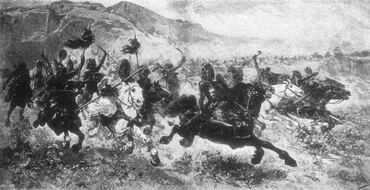1
`Unto thy mouth -- a trumpet, As an eagle against the house of Jehovah, Because they transgressed My covenant, And against My law they have rebelled.
2
To Me they cry, `My God, we -- Israel -- have known Thee.'
3
Cast off good hath Israel, an enemy pursueth him.
4
They have made kings, and not by Me, They have made princes, and I have not known, Their silver and their gold they have made to them idols, So that they are cut off.
5
Cast off hath thy calf, O Samaria, Burned hath Mine anger against them, Till when are they not capable of purity?
6
For even it [is] of Israel; an artificer made it, And it [is] not God, For the calf of Samaria is fragments!
7
For wind they sow, and a hurricane they reap, Stalk it hath none -- a shoot not yielding grain, If so be it yield -- strangers do swallow it up.
8
Israel hath been swallowed up, Now they have been among nations, As a vessel in which is no delight.
9
For they -- they have gone up [to] Asshur, A wild ass alone by himself [is] Ephraim, They have hired lovers!
10
Also though they hire among nations, Now I gather them, and they are pained a little, From the burden of a king of princes.
11
Because Ephraim did multiply altars to sin, They have been to him altars to sin.
12
I write for him numerous things of My law, As a strange thing they have been reckoned.
13
The sacrifices of Mine offerings! They sacrifice flesh, and they eat, Jehovah hath not accepted them, Now doth He remember their iniquity, And inspect their sin, They -- [to] Egypt they turn back.
14
And forget doth Israel his Maker, and buildeth temples, And Judah hath multiplied cities of defence, And I have sent a fire into his cities, And it hath consumed their palaces!







